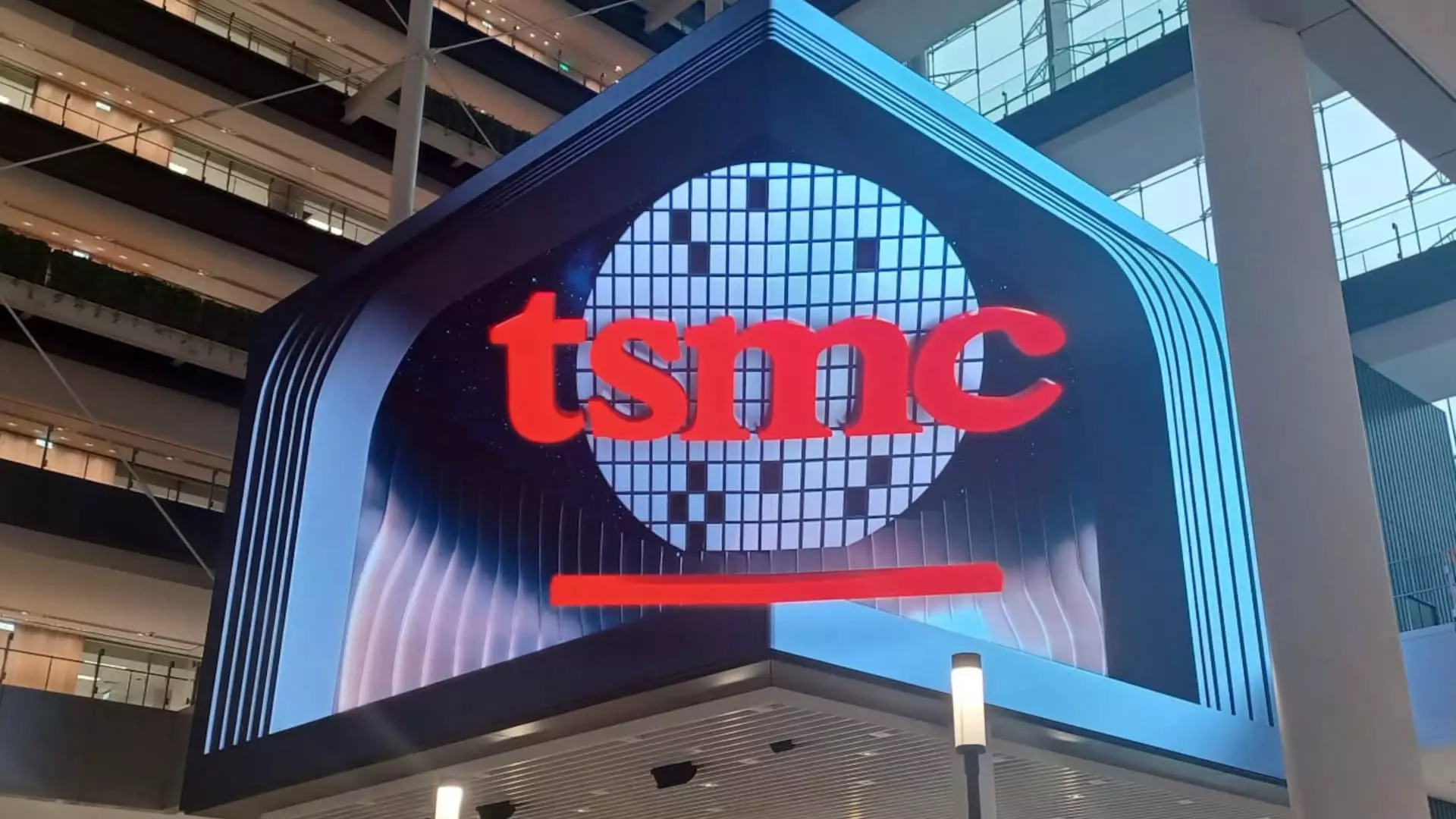The Taiwan Semiconductor Manufacturing Company (TSMC) has recently reported exceptional financial results for the fourth quarter, showcasing a performance that far surpassed market expectations. The company’s net revenue reached an impressive 868.46 billion New Taiwan dollars (approximately $26.36 billion), comfortably exceeding the anticipated NT$850.08 billion. This significant revenue boost highlights the insatiable demand for advanced chips, particularly those designed for artificial intelligence (AI) applications. TSMC’s net income also witnessed a remarkable increase to NT$374.68 billion, surpassing the consensus estimate of NT$366.61 billion.
These figures are even more striking when compared to the previous year, with TSMC’s profit rising by a staggering 57% and revenue increasing by 38.8%. The consistency in TSMC’s financial forecasts, predicting fourth-quarter revenue between $26.1 billion and $26.9 billion, indicates a robust operational strategy that’s effectively capitalizing on market trends.
One of the main contributors to TSMC’s revenue surge is its high-performance computing (HPC) division. This sector encompasses critical advancements in artificial intelligence and 5G technologies, which together accounted for a substantial 53% of the company’s total revenue in the fourth quarter alone. With HPC revenue reflecting a 19% uptick from the previous quarter, it is clear that TSMC is not merely riding a transient wave but rather establishing itself as a key player in the burgeoning AI ecosystem.
Industry experts echo this sentiment, with Brady Wang from Counterpoint Research stating that the demand for AI chips has exceeded even the most optimistic forecasts for Q4. Additionally, TSMC’s involvement with major clients like Nvidia and Apple adds a layer of stability and growth potential, as these tech giants increasingly rely on advanced chips to enhance their product offerings, such as the much-anticipated iPhone 16.
Looking beyond the immediate financial success, TSMC’s chief financial officer, Wendell Huang, offered optimistic projections about the future, indicating a strong understanding of market dynamics. He mentioned that there’s an overwhelming demand for AI-related products, which is expected to see continued growth well into 2025. Huang noted that revenue from AI accelerator products is anticipated to account for “close to a mid-teens percentage” of TSMC’s total revenue, with projections pointing to a doubling of this revenue segment by 2025.
However, looming challenges threaten to complicate these rosy forecasts. The company may encounter headwinds in the form of U.S. restrictions on advanced semiconductor shipments to China and the uncertain trade policies anticipated from the incoming Trump administration. TSMC Chairman and CEO C.C. Wei’s decision to bypass participation in Trump’s inauguration underscores the company’s commitment to a low-profile operational stance, which may help mitigate potential diplomatic pressures.
The market has reacted favorably to TSMC’s reports, with shares gaining an impressive 81% throughout 2024. This confidence in TSMC’s resilience has also been mirrored in the broader semiconductor sector, with notable gains observed in European semiconductor companies like ASML and ASM International.
As TSMC navigates an increasingly complex geopolitical landscape, the company must balance its strategic growth investments with the need to address international trade concerns. While the anticipated revenue growth from AI technologies is promising, TSMC will need to remain vigilant about potential regulatory impacts that could influence its operations and supply chain.
TSMC’s fourth-quarter performance not only exemplifies its dominance as the world’s largest contract chip manufacturer but also highlights the vast potential of the semiconductor industry, particularly in relation to AI applications. As demand continues to soar, TSMC stands well-positioned to leverage its cutting-edge technology and strong client relationships. Nevertheless, recognizing and adapting to external challenges will be critical for sustaining long-term growth and maintaining its esteemed industry position. Ultimately, TSMC’s ability to innovate and respond to market shifts will determine its trajectory in the fast-evolving landscape of advanced semiconductor manufacturing.

